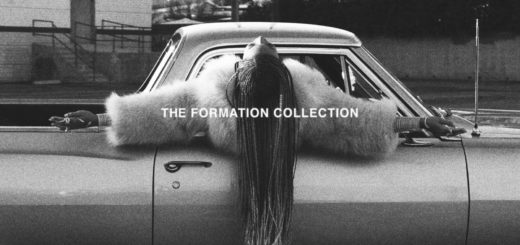THE RETURN OF TANYA TUCKER FEATURING BRANDI CARLILE
NASHVILLE FILM FESTIVAL 2022
The Nashville Film Festival will always, I suppose, feature documentaries about music. Since I started reviewing NFF offerings, I’ve been given glimpses into obscure corners of music like industrial musicals and DIY rock. I’ve done deep dives on musicians with only a handful of hits, or no hits at all, but a prime location in the culture. I’ve learned the complete story on at least one set of household names.
Now to this list I can add The Return Of Tanya Tucker Featuring Brandi Carlile, a film about exactly what its title indicates. The film traces Tanya Tucker’s return, specifically, to a recording studio; she returned in 2019, after 17 years without recording anything. Her return was at the urging of Brandi Carlile, who represents a newer, younger, markedly different generation in country music, but who sees a direct line between herself and Tanya.The film illustrates that as far as Brandi is concerned, Tanya “begat” Brandi, and other singers of Brandi’s generation.
The documentary which also played at the SXSW film festival, follows how Carlile and Shooter Jennings (who was literally begat by an earlier country icon) produce Tanya’s newest album, and we’re ringside for the whole process. We’re even made party to the first moment (of a sort) between Tucker and Carlile; Shooter Jennings, whom Tanya has known all of his life because of dear old Dad, introduces Tanya to Brandi via text message. Tanya’s response—unaware that Carlile will be reading it—is “Who’n the hell is this Brandi bitch?”
Their relationship improves, but that interaction sets the tone for the obvious contrast between the two singers. We get Brandi the modern, polished professional, and Tanya, who is also professional, but rougher around the edges (which edges she smooths throughout the film with copious amounts of tequila mixed with ruby red grapefruit juice. This is a concoction that would kill this reviewer, but seems to work fine for Tucker.)
We get two distinct narrative tracks as the film progresses. Track one is the recording of the album itself, which Carlile hopes will do for Tucker what Rick Rubin’s American Recordings work did for Johnny Cash (suffice to say, it didn’t Hurt). During the recording, Tucker mentions being on the phone with a friend and coming up with partial song lyrics, which Carlile encourages her to tease out into a full song. The song, “Bring My Flowers Now,” eventually wins a Grammy for Best Country Song, and the friend gets to hear TT (as she is affectionately referred to) perform the song at said friend’s 90th birthday party. The friend is no slouch at country music herself—the recently-departed Loretta Lynn.
The other narrative track here, unevenly spaced throughout the film, is exactly what we expect—the story of Tanya Tucker. She grows up in a small town in Arizona, with a father who believes in her to no end (and, to the good fortune of director Kathryn Horan, took reels upon reels of home movies). He discovers that his daughter can sing, and encourages her to do so wherever and whenever possible. We get a lot of footage of wee Tanya singing at local rodeos and American Legion halls and the like. He sends a demo tape to CBS Records in 1972, and the brass there like what they hear; the 14-year-old Tucker is asked to choose a song to record as a first single. She opts out of “Happiest Girl In The Whole USA,” letting Donna Fargo have it; instead, this (again) 14-year-old girl is drawn to a story song about a delusional woman in her forties. Her name is Delta Dawn, and she helps Tanya begin her career in country.
The rest of her career arc is told in talking-head shots and exceptional archival footage, including the bold choice of showing a clearly altered Tucker on The Tomorrow Show With Tom Snyder, and, to the delight of this Nashville-based audience, footage of her from a bygone local talk show named Miller & Co., wherein she chats with the late Dan Miller, a local newscaster with a baritone like butter and a great personality.
It’s not really a surprising story, almost boilerplate for a lot of musicians; we see the rise, the fall, and the rise again as it’s happening. If you wanted to be cynical, you could say, why bother? Didn’t we more or less know how this would go? Well, yeah, maybe, but we don’t know the exact details, and the details combine together to make the story, and the story humanizes the celebrity, makes that person real—and that’s why you bother, I think, to make a documentary. Knowing her exact story makes us rejoice all the more when the finished album does in fact bring Tucker back into the fold, and wins her multiple Grammys. It makes us happy for Carlile, who regards Tucker as a foundational hero, but for whom she herself might not be the artist she is.
Years ago, I worked a data-entry job on Friday and Saturday nights, and brought an AM radio along with me for entertainment. (Yes, I’m old.) I fell into the habit of listening to the Grand Old Opry those nights, and I can still hear a commercial for Dollar General that ran during the Opry. In it, the announcer said that country music’s value is not in romanticized versions of reality, but “in celebrating life…as it really is.” (No, I’m not sure what that has to do with Dollar General.) The Return of Tanya Tucker also celebrates life as it really is. It’s about people who are where they are, and how they move forward from there.






















